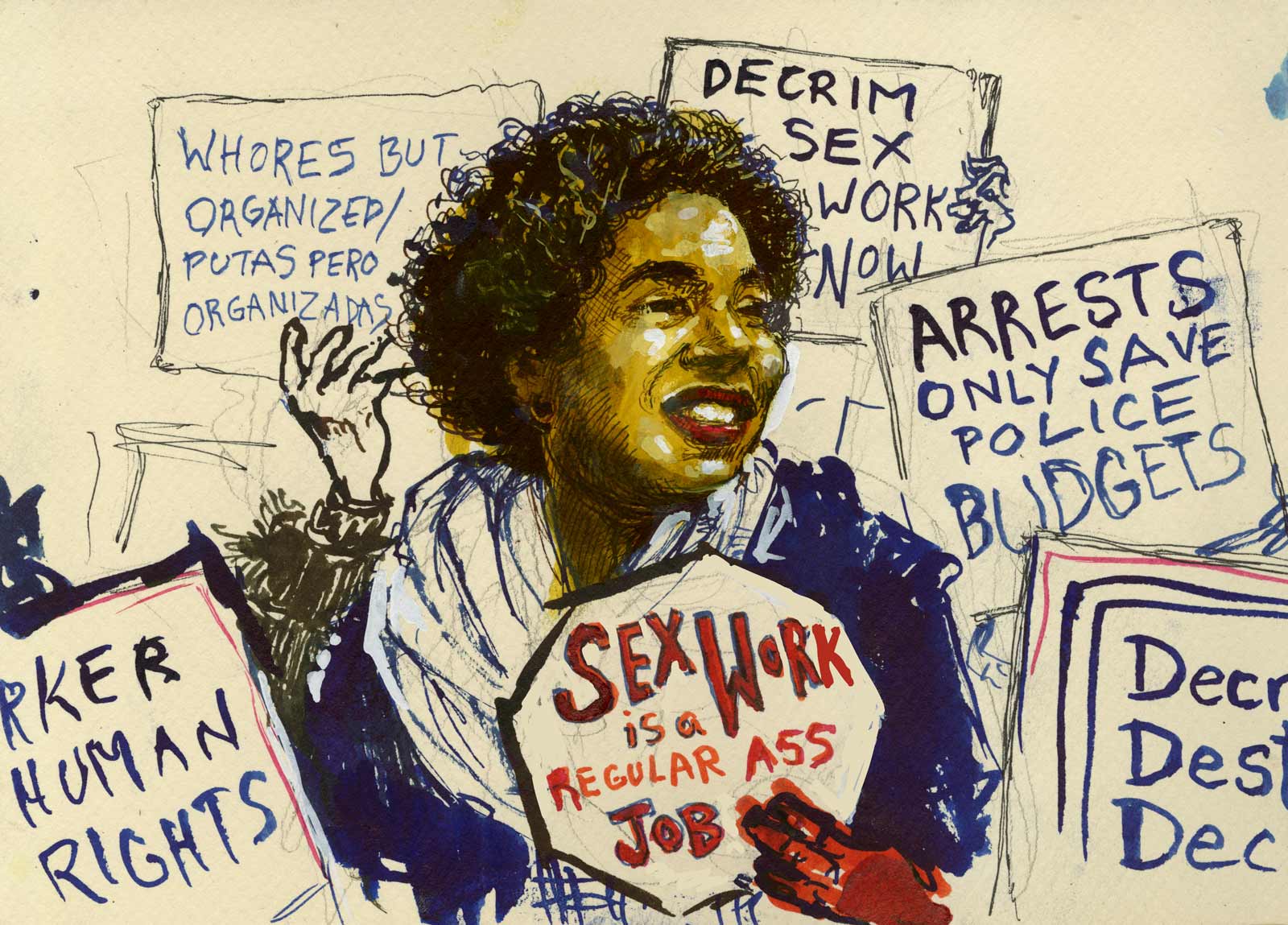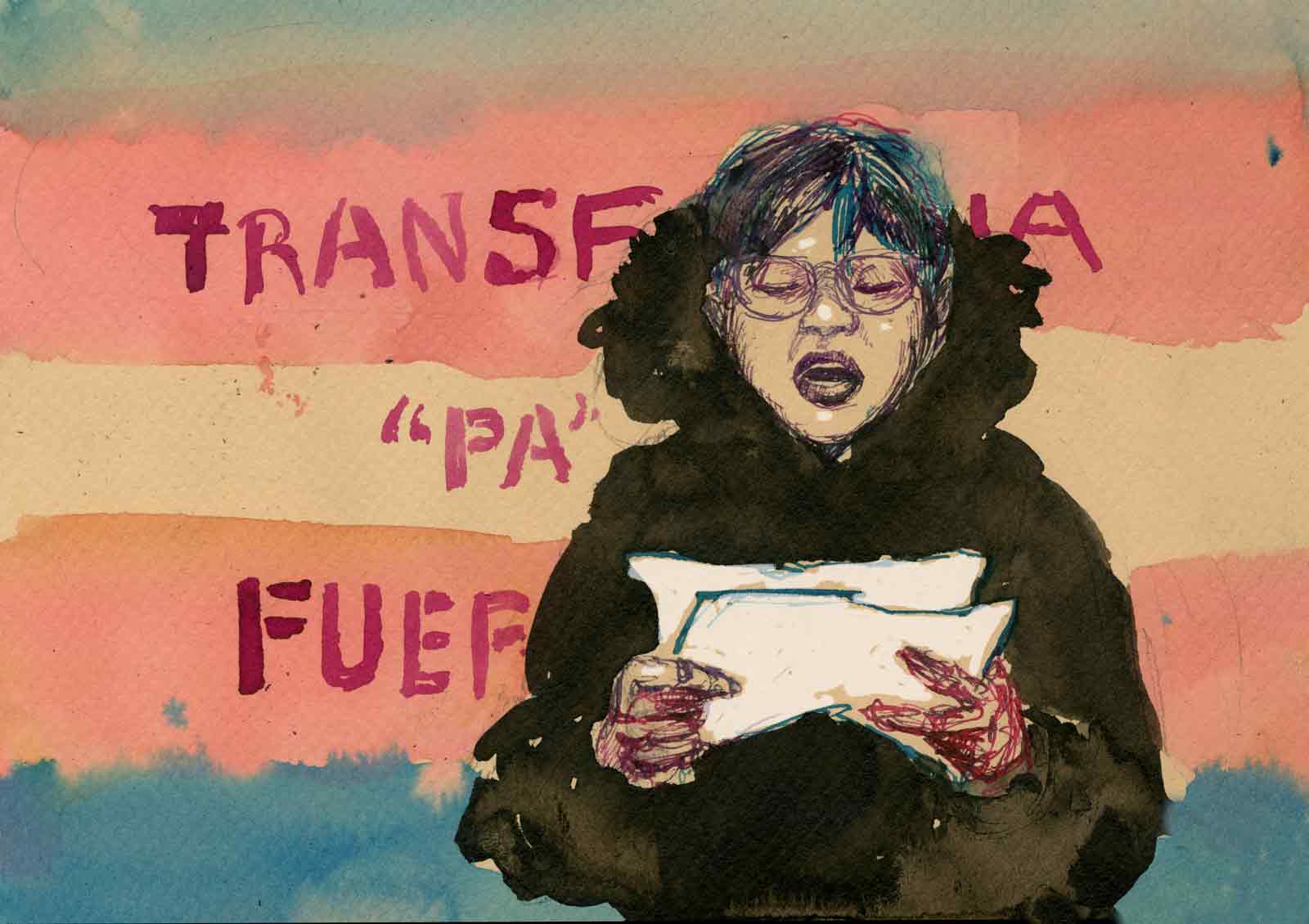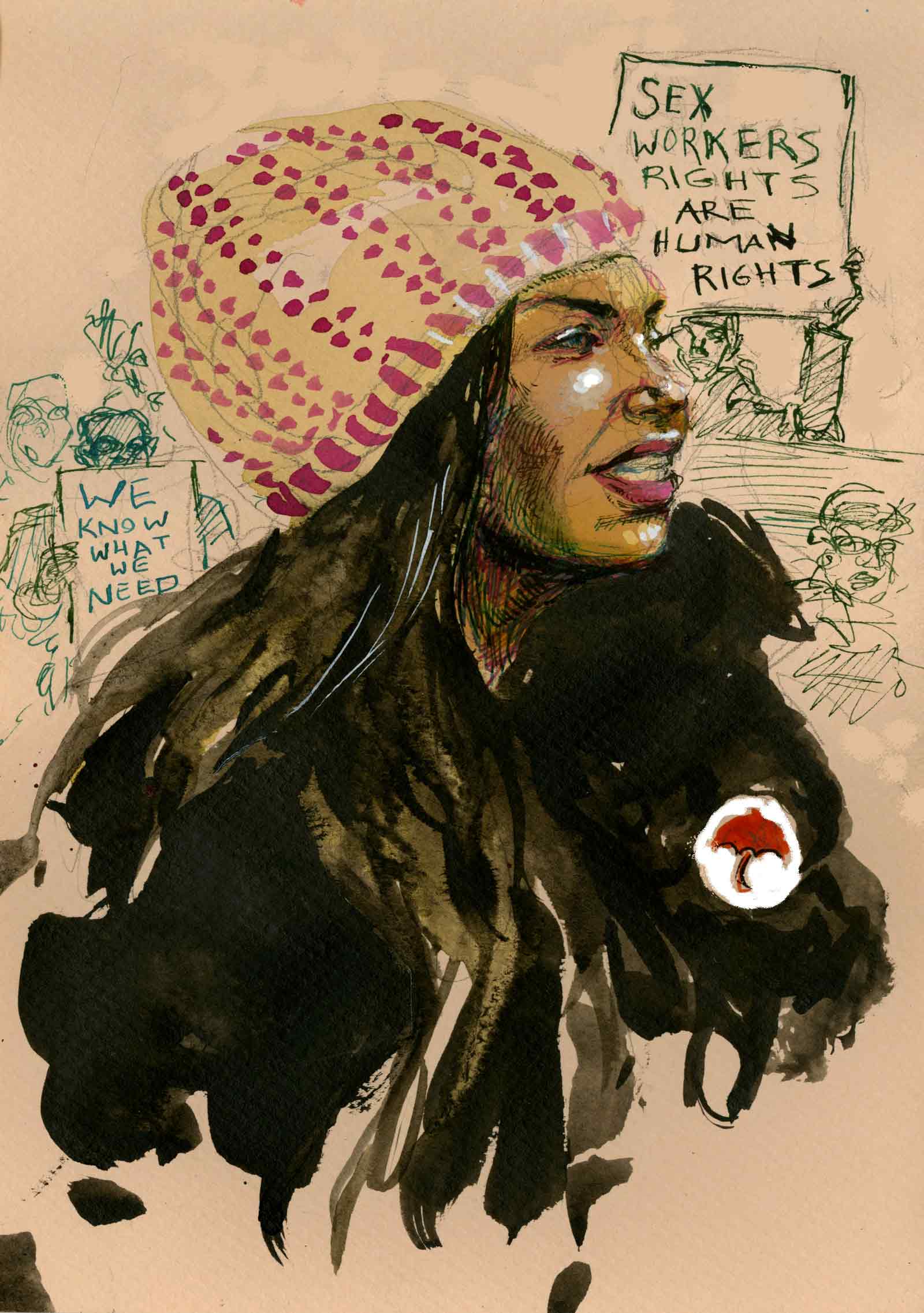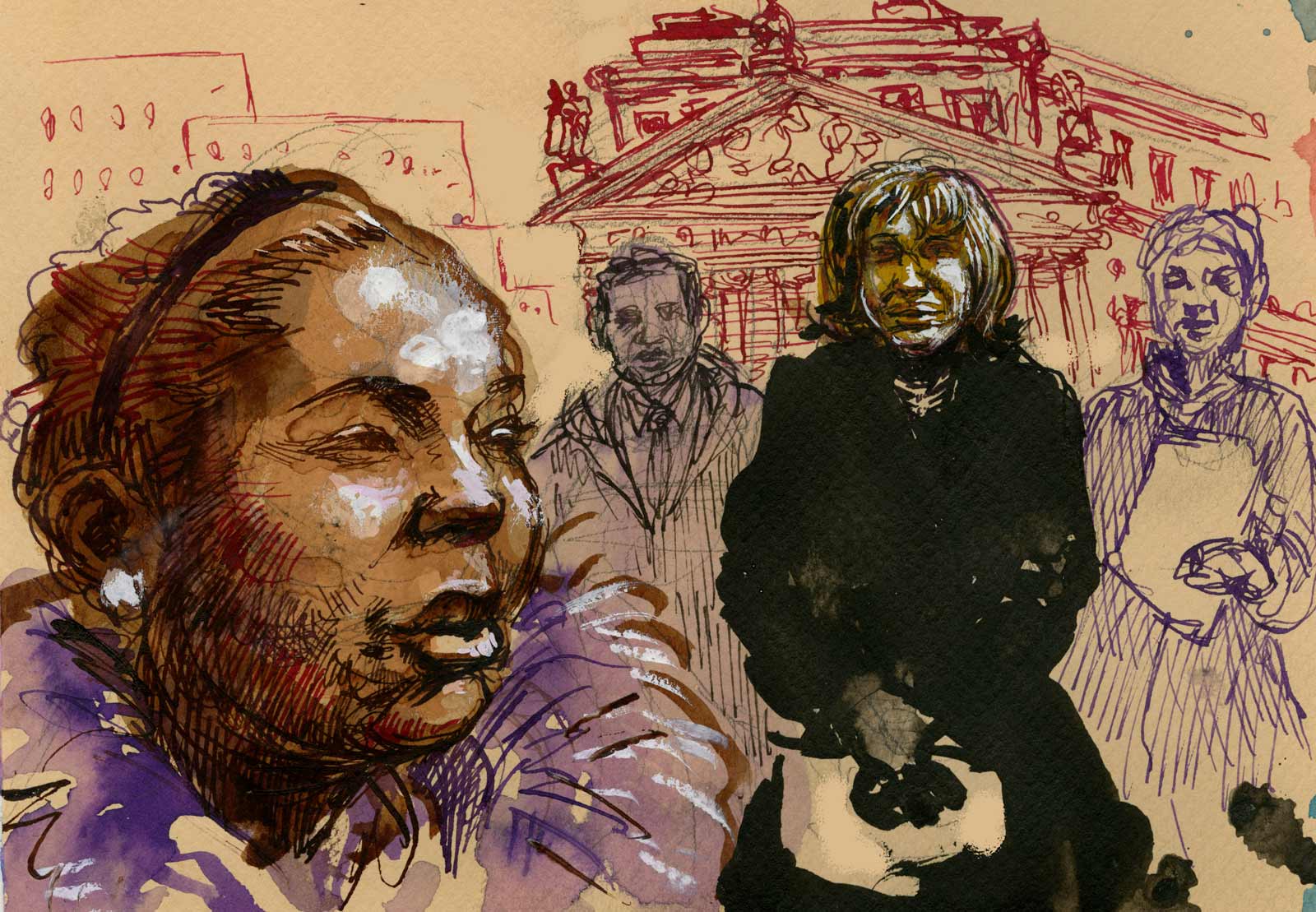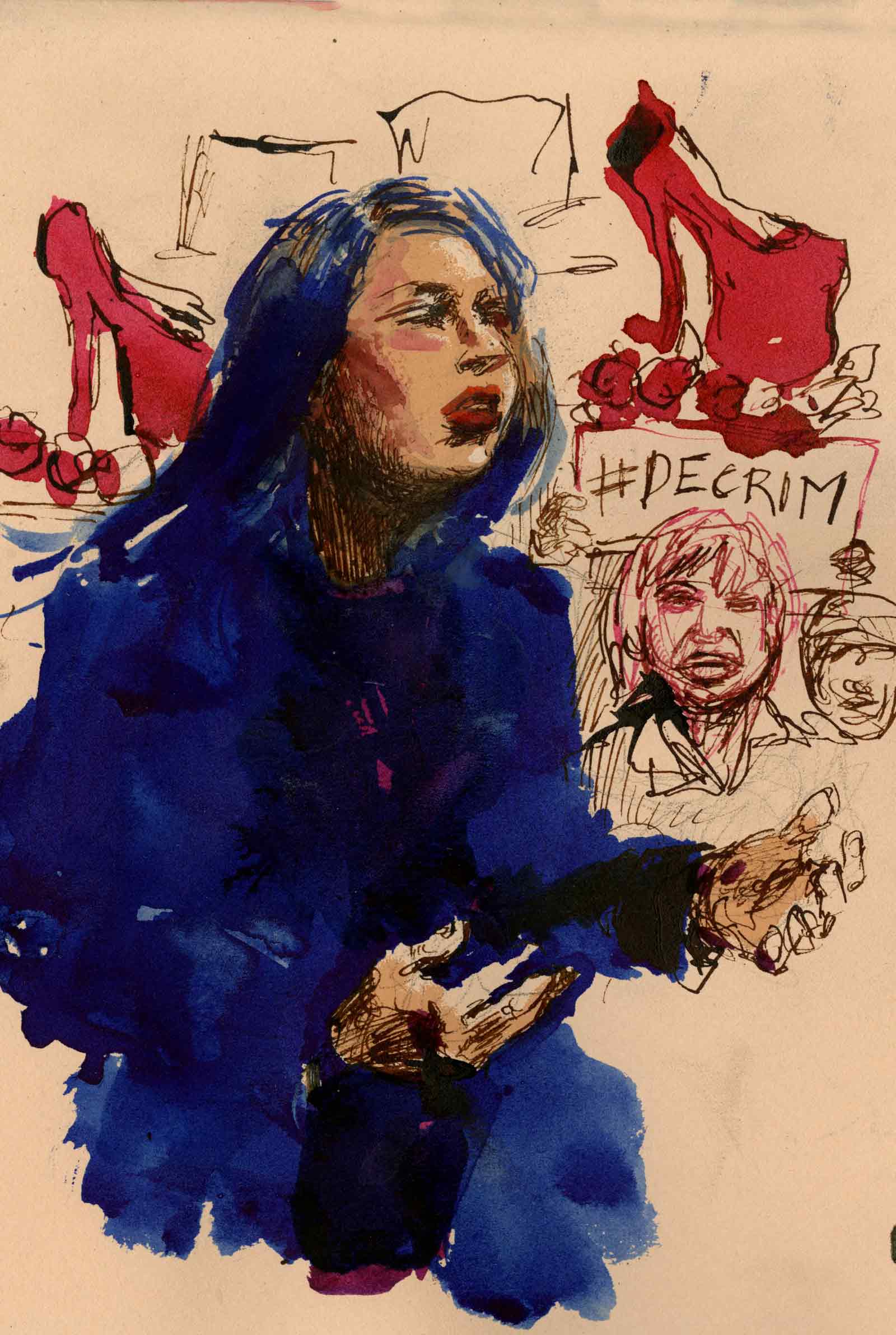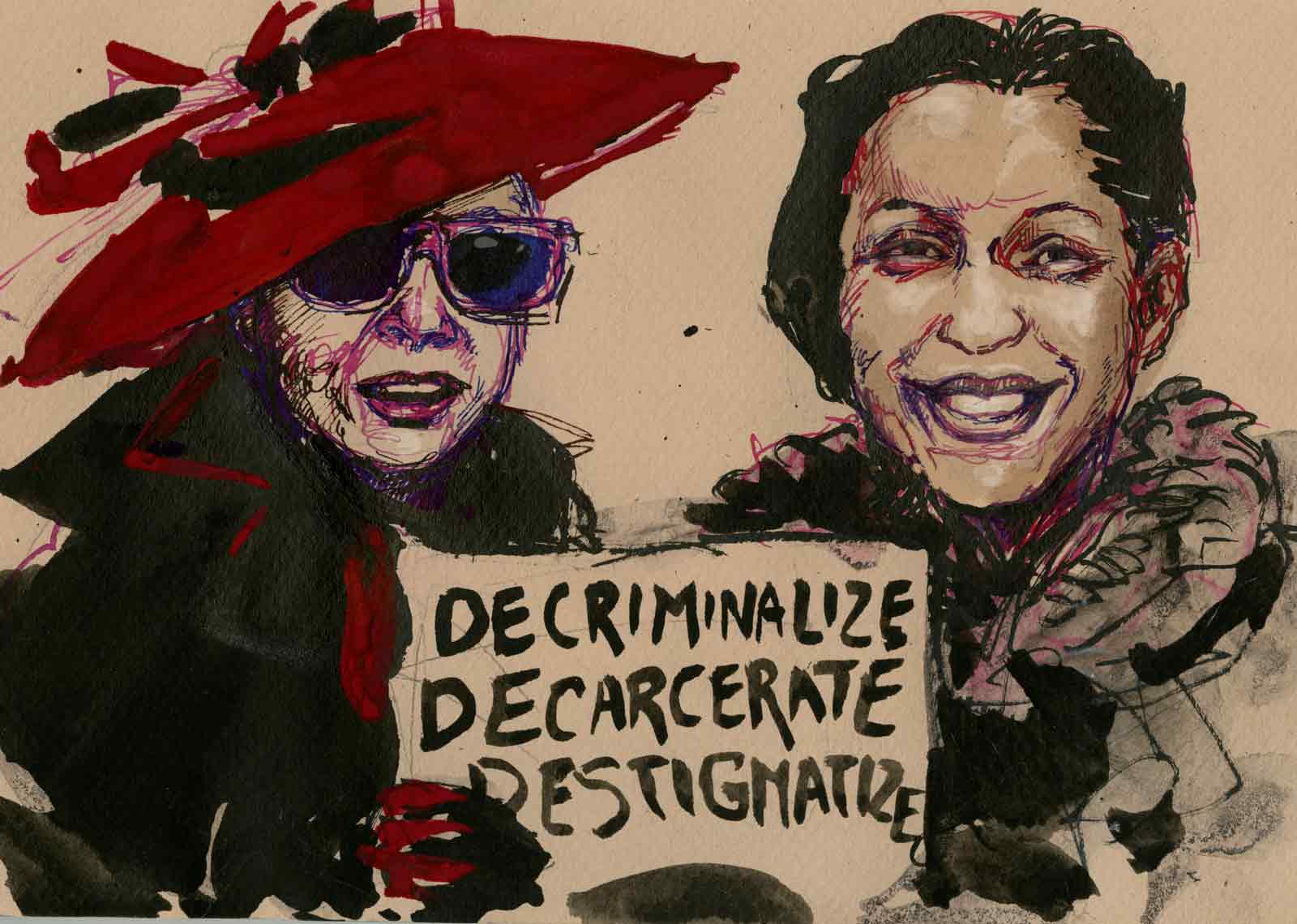“I have seen sex workers all of my life,” Jessica Ramos declared. “I have seen them denigrated by neighbors. The answer is always, call the police to fix this. Police do not fix anything.” She was speaking at a February 25 rally in Foley Square, New York, in front of 150 sex workers and supporters. This might seem like a small event, one of perhaps thousands of protests that take place every year in this city of ten million people, but it represented a radical break with the past. For Ramos is a state senator (Democrat of Queens), and this spring, along with her colleague, Senator Julia Salazar (Democrat of Brooklyn), she promised to introduce a bill to decriminalize the sex trade in New York.
The rally had been called by a new coalition, Decrim NY, formed by current and former sex workers and local organizations that want to get the police and the courts out of their communities. In addition to Senators Ramos and Salazar, it featured a line-up of public defenders, sex workers, and local politicians. Even State Assembly member Linda Rosenthal sent a letter of support.
Over a decade ago, when I was drawing for the dearly departed sex-worker magazine $pread, such mainstream political backing would have seemed impossible. When politicians mentioned sex workers at all, it was as a punchline, as victims to be condescended to, or as objects of moral sanction. But things started changing in 2018. That April, the US Congress passed FOSTA/SESTA, twin bills that stripped sex workers of the ability to advertise or seek support online by making websites criminally liable for their postings. This impoverished the community, forcing some workers back to pimps or onto streets, where they faced arrest or assault.
In response, sex workers—both young women and longtime activists—got together and mobilized to fight for full decriminalization of their work. They rejected the so-called Nordic Model, which mandates the arrest of clients and managers but not of prostitutes, saying it impoverished them and still gave the police control over their lives by allowing police surveillance of their workplaces. They focused on lobbying politicians. The closing words of Ramos’s statement—“I’m here to say thank you for having the bravery of being yourselves, of advocating for yourselves. I can’t wait to keep working with you”—showed how effective their efforts have been.
The state senators’ initiative is not without precedent. There have been a few local initiatives to decriminalize sex work, including a D.C. bill that has been pending since 2017. But until now, even leftist politicians have tended to stay far away from the issue, fearing pushback from some feminist groups. Last year, both Elizabeth Warren and Bernie Sanders helped sign FOSTA/SESTA into law. And in response to February’s Decrim NY rally, the New York chapter of the National Organization of Women called a counter-demonstration on the steps of City Hall for March 11 to protest the prospective Ramos–Salazar bill.
At the heart of Decrim NY’s rally were the sex workers—both joyous and rueful, but determined either way. Contrary to the stereotype that sex-worker activists are out-of-touch white escorts making some side money to waste on Louboutin shoes, these were women of color, working-class and fiercely eloquent. Acting as the rally’s emcee, Cecilia Gentili, an immigrant, activist and member of Decrim NY’s steering committee, denounced the sexual assault of sex workers by police. She had been often targeted for arrest, she said—once just for holding hands with her boyfriend. Because Cecilia is trans, the officer refused to believe the couple were just out on a date.
“I was sent to Rikers, then ICE,” she said. “They would have sent me back to a country that would have killed me.” Other sex workers spoke. Jennifer Orellana, a trans woman and activist, said that, after coworkers’ bigotry forced her from a nursing job at San Juan City Hospital in Puerto Rico, she moved to New York and turned to the “oldest profession,” in which she has worked for the past eighteen years. But she lived under constant police harassment: on one occasion, she said, officers broke down her door to arrest her. Then, Kiara St. James came forward, telling the crowd that sex work had saved her life by providing her with the means to support herself.
“Migrant workers have agency,” insisted Julie Xu. “They are targeted for arrest for working in the best way they know how.” Xu is an activist with Red Canary, a group of Asian massage-parlor workers that formed after their colleague, Yang Song, fell to her death during a police raid in 2017. They accuse the NYPD of causing her death. (Melissa Gira Grant and Emma Whitford covered the case extensively for The Appeal.)
Advertisement
One of the signs sex workers raised read “Whores But Organized.” In the frigid morning, mere cursing distance from the US Court House, the air felt charged with exhilaration: it would be a long road toward passing the bill, but the movement was there.
Two days after the Decrim NY rally, Californian senator and 2020 Democratic presidential candidate Kamala Harris declared her support for decriminalization, but appeared to back the Nordic Model. During her days as a prosecutor, Harris had busily jailed prostitutes and moved to shut down Backpage, the main website on which they advertised. But now, as she is running for president, her position has “evolved”—another sign, perhaps, that sex workers, organized, are becoming a constituency worth trying to woo.
The activists at Decrim NY were skeptical. “It is not possible to police clients without policing people who trade sex,” wrote Cecilia Gentili in a press release the group shot off afterward. “The Nordic Model constantly polices, surveils, and harasses people who trade sex for information about our clients.” Activists like Gentili are pushing for full decriminalization of sex work, to get the cops out of their lives altogether. “We are still raped by the police because they have power over us,” she said in her statement.
At the rally, I met Tiffany Cabán, a charismatic young public defender who is running for Queens district attorney. Cabán is endorsed by the Democratic Socialists of America, who recently helped Alexandria Ocasio-Cortez win the Democratic congressional primary and general election in New York’s 14th District, which includes part of Queens. (For full disclosure, I am a member of the DSA.) In Cabán’s case, her left-progressive platform has drawn comparisons to the record of Philadelphia District Attorney Larry Krasner, a veteran civil rights lawyer whose many reforms have included ceasing to prosecute marijuana possession or to seek bail for low-level offenses.
Besides proposing to abolish cash bail and keep ICE out of courthouses, Cabán promises to decline to prosecute sex trade-related offenses—effectively decriminalizing sex work for the more than two million people living in Queens. “If we are going to combat harm done to the sex worker community, we have to fully decriminalize,” she said, “so we’re creating a space where sex workers can get healthcare, or cooperate with attorneys’ offices to hold those who harm them accountable.”


